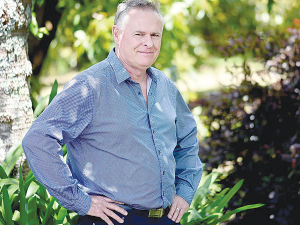Battle for milk
OPINION: Fonterra may be on the verge of selling its consumer business in New Zealand, but the co-operative is not keen on giving any ground to its competitors in the country.
 Fonterra chair Peter McBride says Fonterra has been advocating for greater transparency of milk price.
Fonterra chair Peter McBride says Fonterra has been advocating for greater transparency of milk price.
Fonterra is rejecting claims by rival processors that the co-operative can improperly influence the milk price to boost its raw milk supply.
Fonterra says it objects to claims that the co-op is "gaming" the system.
The comments were made in the co-op's submission to parliamentary select committee for primary production.
It is hearing submissions on the Government's proposal to amend the Dairy Industry Restructuring Act (DIRA) to accommodate changes to the co-op's capital structure.
Fonterra chairman Peter McBride told the committee that many of the proposed DIRA amendments seem to address perceptions around the transparency and independence of the milk price regime.
"We respect the national interest in our milk price, considering that in the last financial year Fonterra's milk payments represented $13.7 billion delivered to the New Zealand economy.
"And, as you will hear from our competitors, Fonterra's milk price sets the benchmark for the industry," says McBride.
"So all New Zealand dairy farmers, whether they supply Fonterra or not, benefit from the fair, transparent, and independently overseen price we pay for our farmers' milk."
McBride goes on to say that, for the record, Fonterra objects "to any inference that the co-op or the individuals involved in the process are somehow 'gaming' the system".
"In fact, Fonterra has been advocating for greater transparency of milk prices across the industry in all of our DIRA submissions.
"We continue to propose that DIRA be amended to require all processors to publish prices paid for farmers' milk.
"Improved transparency of milk prices paid by other processors will address the current imbalance of information available to farmers and support contestability in milk supply."
In their joint submission, four rival processors - Synlait, Miraka, Open Country Dairy and Westland Milk - claimed that with the dismantling of the open entry and exit provisions, the regulation of the base milk price remains the only substantive DIRA provision supporting contestability in the raw milk.
The submission acknowledges that the Government has included provisions which provide for increased transparency, oversight, and some independent management of the processes that determine the base milk price.
"These provisions provide crucial changes which can start to bring credibility to the base milk price," it says.
"The provisions do not prevent or limit Fonterra from paying a milk price different to the base milk price.
"Fonterra has nevertheless criticised them as unnecessarily intrusive.
"Fonterra criticism can alternatively be interpreted to be because they reduce Fonterra's ability to control the base milk price."
McBride notes that it's interesting their competitors are questioning the integrity of our milk price calculation.
He points out that, since 2012, the Commerce Commission has raised just two matters related to the inputs, assumptions and processes used to calculate the base milk price, which Fonterra has not promptly addressed to the Commission's satisfaction.
The World Wide Sires National All Day Breeds Best Youth Camp Best All Rounder plaudit has become family affair, with 2026 Paramount Cup winner Holly Williams following in her sister Zara's footsteps.
DairyNZ is giving New Zealand farmers a unique opportunity to gain hands-on governance and leadership experience within the dairy sector.
Herd improvement company LIC has posted a 5.2% lift in half-year revenue, thanks to increasing demand for genetics.
According to the latest Fresh Produce Trend Report from United Fresh, 2026 will be a year where fruit and vegetables are shaped by cost pressures, rapid digital adoption, and a renewed focus on wellbeing at home.
The Roar is a highlight of the game hunting calendar in New Zealand, with thousands of hunters set to head for the hills to hunt male stags during March and April.
OPINION: The past few weeks have been tough on farms across the North Island: floods and storms have caused damage and disruption to families and businesses.
OPINION: Fonterra may be on the verge of selling its consumer business in New Zealand, but the co-operative is not…
OPINION: What does the birth rate in China have to do with stock trading? Just ask a2 Milk Company.